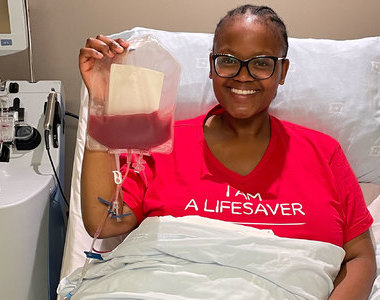UCT VC’s proposals for strengthening scientific freedom in Africa
28 May 2024 | Story Nicole Forrest. Photo Lerato Maduna. Voice Cwenga Koyana. Read time 6 min.
University of Cape Town (UCT) Vice-Chancellor interim Emeritus Professor Daya Reddy has contributed to the latest scientific report from UNESCO, “African Perspectives on Scientific Freedom: Insights from Policy and Practice in Six Countries”. His concluding chapter to the report identifies common trends, challenges and opportunities in the pilot countries, and sets out recommendations for strengthening science, technology and innovation (STI) systems, along with scientific freedom.
Launched in the lead-up to Africa Month at the sixth annual African Science, Technology and Innovation Forum, the report is intended to shed light on the state of and perspectives on scientific freedom in Africa, and to make recommendations for its promotion and its incorporation in policies and its embedding in various forms of scientific activity.
According to UNESCO, science “can only flourish in an open and safe science ecosystem” that permits freedom of association and expression. The study focuses on six pilot countries – Congo, Ghana, Namibia, Sierra Leone, Tanzania and Zimbabwe – and in respect of each explores the understanding and interpretations of scientific freedom, and its place in scientific activity as well as in relevant legislation and policies.
“The pilot countries in this study are diverse in geographical location, population, language, the development of science and technology, and vary from Namibia with 2.5 million inhabitants to Tanzania with 62 million. This provided us with a good, diverse cross-section of the scientific environment across Africa,” said Emeritus Professor Reddy.
The report includes an overview of the state of science in Africa. While the continent accounts for 12.5% of the global population, it provides just 1% of research outputs. Research and development expenditure averages also 0.3% to 0.4% of national gross domestic product (GDP), well below the African Union’s target of 1%.
The challenges to scientific freedom
Reddy noted that, in its exploration of scientific freedom in Africa, the report has highlighted variations in the understanding of this principle. Components of the definitions may be found, for example, in the United Nations’ Universal Declaration of Human Rights and UNESCO’s International Covenant on Economic, Social and Cultural Rights (ICESCR).
“The ICESCR enjoins member states to protect the right to enjoy the benefits of scientific progress and its applications. This should include freedom of movement, association, expression and communication for scientists. Very importantly, it must also include access – and equitable access – to data and other scientific resources.”
“There is very little reference to scientific freedom, in national policies and other areas, around Africa.”
While national constitutions generally offer protection for various freedoms, the explicit inclusion of scientific freedom is rare. “What has emerged from the study is that there is very little reference to scientific freedom, in national policies and other areas, around Africa,” he noted.
“The African Charter on Human and Peoples’ Rights, to which all but one of the African countries is signatory, recognises freedom of expression, education and culture, academic and institutional autonomy, but it is silent regarding scientific or academic freedom.”
“Furthermore, there is little evidence of legislative or policy-related measures to protect and promote scientific freedom in legislation and policies as well as through public engagement, though in some countries provision is made for the development of monitoring and evaluation indicators, as well as for the more explicit formulation of freedoms, responsibilities and rights of researchers in relevant statutes.”
“There is, though, a record of engagement with notions of academic freedom in Africa, as demonstrated by a range of statements, covenants and charters dedicated to this goal.”
A strong scientific ecosystem – an essential for Africa
In his conclusion, Reddy highlights that a strong scientific ecosystem is an essential prerequisite to addressing gaps and strengthening scientific freedom. The report therefore sets out recommendations aimed at strengthening STI systems, in tandem with those aimed at promoting and strengthening scientific freedom.
“A key recommendation pertains to the importance of fostering effective cooperation at regional and global levels, including Global South–South as well as South–North equitable partnerships, and sharing of data and other resources in systems underpinned by principles of open science: in other words, open access, free sharing of information and of data. It’s not locked up and you aren’t charged a fortune to access it,” explained Reddy.
“Africa is by and large marginalised. We need to build capacity and strengthen our science and technology scholarship broadly across the continent. A critical mass would allow for cooperation on an equitable basis with partners on the continent and around the world.”
Recommendations on scientific freedom begin with the measures to develop awareness and understanding of scientific freedom and its relationship to scientific responsibility across multiple sectors: the scientific community, policymakers, university leaders and civil society. This serves to lay the groundwork for incorporation of scientific freedom into relevant policies and the creation of procedures for monitoring scientific freedom, and for redress in case of infringements.
The “African Perspectives on Scientific Freedom: Insights from Policy and Practice in Six Countries” report was launched on 21 April 2024 at the sixth annual African Science, Technology and Innovation Forum in Addis Ababa, Ghana. Reddy presented the key findings of the report and took part in a roundtable discussion about scientific freedom in Africa.
 This work is licensed under a Creative Commons Attribution-NoDerivatives 4.0 International License.
This work is licensed under a Creative Commons Attribution-NoDerivatives 4.0 International License.
Please view the republishing articles page for more information.
Listen to the news
The stories in this selection include an audio recording for your listening convenience.











































































































































































































































































































































































































